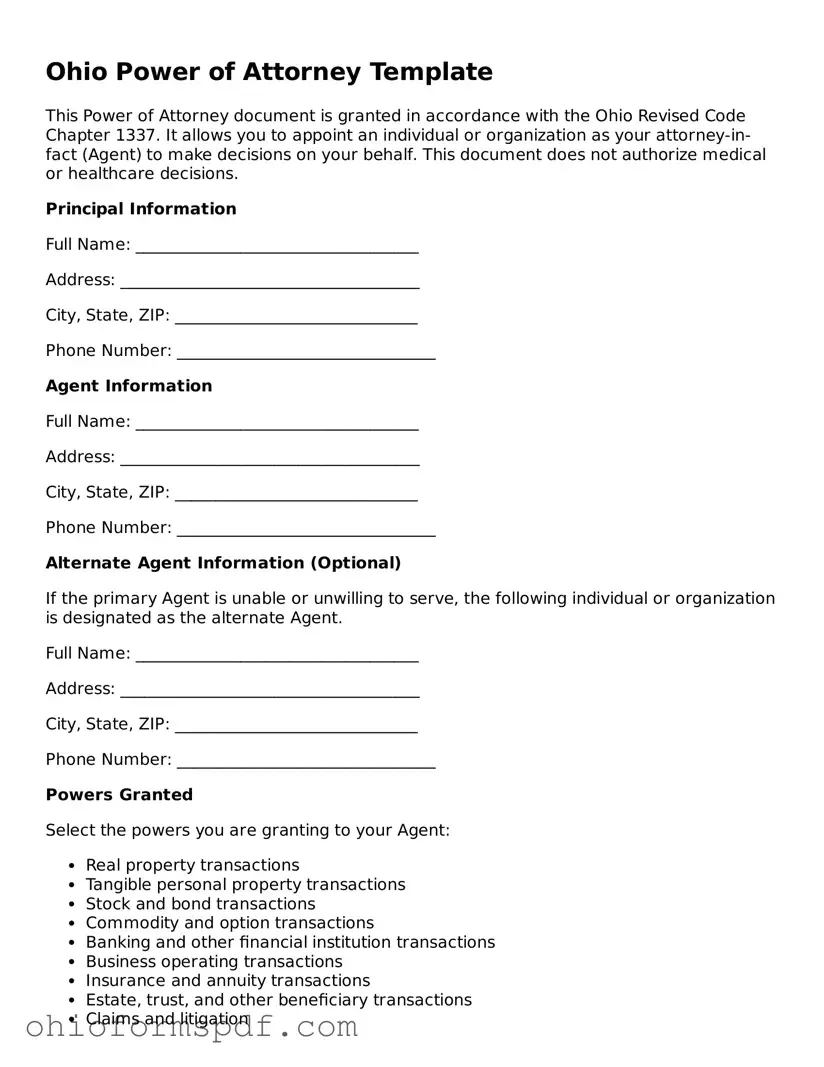Ohio Power of Attorney Template
This Power of Attorney document is granted in accordance with the Ohio Revised Code Chapter 1337. It allows you to appoint an individual or organization as your attorney-in-fact (Agent) to make decisions on your behalf. This document does not authorize medical or healthcare decisions.
Principal Information
Full Name: ___________________________________
Address: _____________________________________
City, State, ZIP: ______________________________
Phone Number: ________________________________
Agent Information
Full Name: ___________________________________
Address: _____________________________________
City, State, ZIP: ______________________________
Phone Number: ________________________________
Alternate Agent Information (Optional)
If the primary Agent is unable or unwilling to serve, the following individual or organization is designated as the alternate Agent.
Full Name: ___________________________________
Address: _____________________________________
City, State, ZIP: ______________________________
Phone Number: ________________________________
Powers Granted
Select the powers you are granting to your Agent:
- Real property transactions
- Tangible personal property transactions
- Stock and bond transactions
- Commodity and option transactions
- Banking and other financial institution transactions
- Business operating transactions
- Insurance and annuity transactions
- Estate, trust, and other beneficiary transactions
- Claims and litigation
- Personal and family maintenance
- Benefits from social security, Medicare, Medicaid, or other governmental programs, or military service
- Retirement plan transactions
- Tax matters
In place for other powers not listed, describe below:
_______________________________________________
_______________________________________________
Effective Date and Duration
This Power of Attorney will become effective on the date below and will remain in effect until the Principal becomes disabled, incapacitated, or revoked:
Date: _________________________________________
Signatures
This document must be signed and dated by the Principal and notarized to be valid.
Principal's Signature: ___________________________
Date: _________________________________________
Agent's Signature: ______________________________
Date: _________________________________________
State of Ohio, County of ________________________
This document was acknowledged before me on (date) _____________________ by (name of Principal) ___________________________.
________________________________________________
(Seal) Notary Public
My Commission Expires: __________________________

